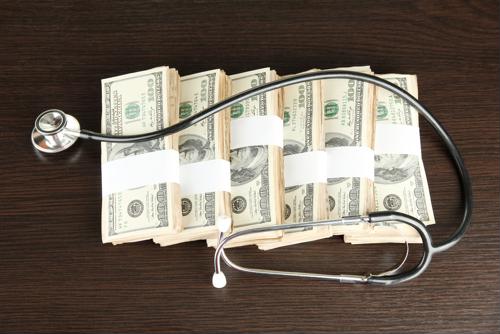
Medical debt can be a burden that weighs heavily on many Americans. Even before the global health crisis known as the COVID-19 pandemic, millions of people shouldered unavoidable costs related to their health. Between those who were hospitalized due to coronavirus and those who have had health issues as a result of having the virus, medical debt in America is piling up.
At the onset of the COVID-19 epidemic, according to the U.S. Bureau of Labor Statistics(BLS), the unemployment rate in April 2020 increased to 14.7%. This was the highest such increase since January 1948. BLS attributed this rise to businesses and governmental efforts to contain the spread of coronavirus. March 2020 had the greatest initial unemployment rate at 6.6 million unemployed Americans. More people claimed unemployment that month than at the peak of the Great Recession.
Many employers had to let staff members go during this period due to diminished demand. The many Americans who became jobless also lost their employer-sponsored health insurance. Before the pandemic, in 2019, a study by the Kaiser Family Foundation revealed that almost half of American citizens relied on their employer for health insurance.
According to a study by the Commonwealth Fund, the Employee Benefit Research Institute and the W.E. Upton Institute, about 7.7 million workers had lost their group insurance by June 2020. This not only affected the workers but also 6.9 million of their dependents.
Losing health insurance in the middle of a pandemic left millions of people saddled with unavoidable medical debt. Credit Karma collected data from their members showing medical debt increased by $2.8 billion from the end of May 2020 to the end of March 2021. Their data analysis also revealed that those with past-due medical debt grew by nearly 9%, from 19.6 million to 21.4 million people.
Those who contracted severe cases of COVID-19 face major health risks that can put them in the hospital for weeks at a time, ultimately costing the uninsured anywhere from $51,000 to $78,000. The virus can attack the lungs and heart, and the symptoms can cause the affected to become dangerously dehydrated.
Coronavirus alone can land the sick in intensive care, and it can also exacerbate pre-existing conditions in some individuals. Between those who have to fork over more money to protect their vulnerable health, the long-term side effects of COVID-19 may add to the nation's growing medical debt. Here are some of those long-term effects related to the virus that can contribute to health bills:
A survey by LendingTree found that 60% of polled Americans faced medical debt. Of that 60%, 53% reported that their debt was greater than $5,000. Aside from the emotional and mental stress that medical debt can add to the trauma that already exists from simply being sick, debt often stops people from living life to its fullest potential. 72% of responders reported that owing money "prevented them from pursuing key financial milestones, like buying a home or having a child."
When you feel like you are drowning in medical debt, it can feel like there is no hope. Especially for those who face long-term side effects or chronic illnesses as a result of the COVID-19, it may seem you are stuck in a vicious cycle. The good news is that there are financial professionals who want to see you succeed and meet your goals. Help is out there, but many feel too overwhelmed to ask for it.
A survey conducted by debt.com showed that 60% of the respondents didn't try or didn't know how to negotiate medical debt payments. Additionally, just under 5% utilized a medical billing advocate. If you are an American who is financially affected as a result of COVID-19, you are not alone.